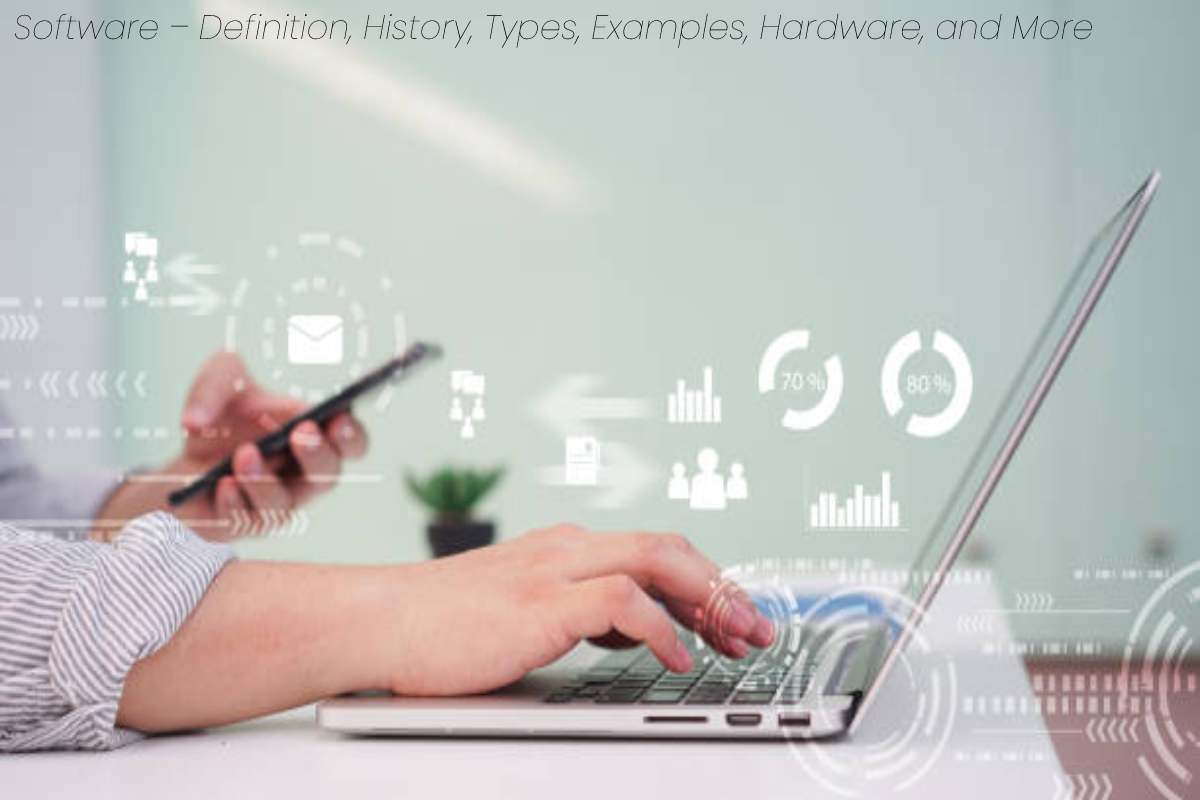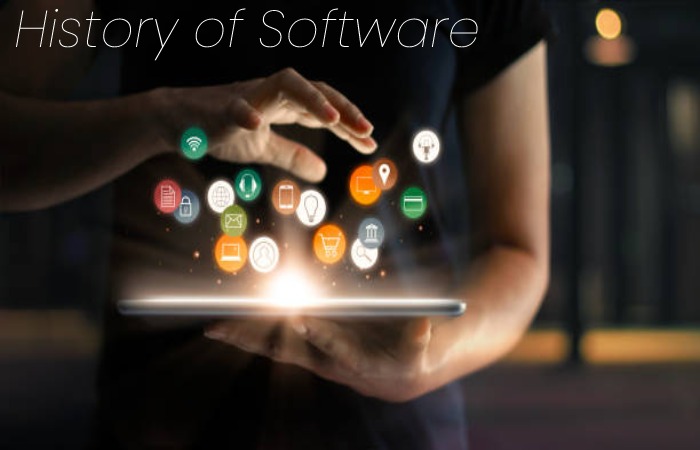

Table of Contents
The term software is an English word taken by other languages. It designates any intangible (and non-physical) that is part of devices such as computers, phones or tablets and allows their operation.
The comprises a set of applications and programs designed to fulfil various functions within a system. In addition, it is made up of user information process data.
The programs that are part of the indicate to the hardware (the physical aspect of a device), using instructions, the steps to follow.


The history of these logical systems dates back to the 1930s when the computer scientist Alan Turing (1912-1954) spoke in a paper about numbers that could compute through an application. This was the first conceptual idea about this type of logic of a machine, but in 1958 is when the term uses for the first time by the statistician John W. Tukey (1915-2000).
One of the innovators in developing the first programming computer was Ada Lovelace (1815-1852), who worked on a calculator. Computer expert Donald Knuth (1938) consider the father of algorithmic interpretation since his contribution helped create current compilers, which support creating new by translating languages into binary.
On the other hand, Dennis Ritchie (1941-2011) cooperate to development one of the first operating systems and set a precedent for the current ones.
Through the 1950s, 1960s, and 1970s, in the early eras of it, they were primarily thought of as plugins and develop and use by the same person for particular purposes. They design with tests without methodologies for their creation.
Fortran and COBOL were create, which were the first: while Fortran was use to perform computations, COBOL was orient towards data processing.
Similarly, multi-user programs emerge, the first human-machine interaction establish, and processing speeds increase from minutes to a few milliseconds.
Software is secret according to its function in:
There are many examples of it, which are classified according to their function in:
Image editing software: For example, Adobe Photoshop, Paint shop, GIMP.
Word Processing Software: For example, Microsoft Word, Word Pad, Notepad.
Audio software: For instance, Adobe Audition, Abel on, Pro Tools.
Communication Software: For example, Facebook, Skype, Zoom.
Design and architecture software: For example, AutoCAD, Adobe Illustrator, Revit.
Accounting Software: For instance, Logo, Xerox, Mud box.
Operating system software: For example, Linus, macOS, Windows.
Virus protection software: For example, AVG Antivirus, McAfee, Panda.
Programming Software: For example, Microsoft Visual Studio, X code, Lazarus.
Hardware is the set of material elements part of an electronic device. Every device comprises the intangible part, and the substantial part, the hardware. For example: in the situation of a computer, the hardware is made up of the monitor, the keyboard, the mouse, among others.
Both software and hardware are critical pieces for the correct execution of a computer or mobile device. Users cannot run without hardware, and hardware is useless without. Both are opposite but balancing, so they compose.
Each device is made up of different pieces of hardware that can be electronic, electrical or mechanical then fulfil a specific function—for example, a storage memory or a video card.
There is the leading hardware, essential for the proper functioning of the device, and the complementary hardware made up of accessories with specific functionalities.
The concept of free refers to those programs that allow the user to use, copy, modify and distribute it. To make these actions effective, said must include the source code.
Examples include Mozilla Firefox browser, Clam Win Free antivirus, and Q Cad assisted design application.
In opposition to this term, proprietary software indicates that a computer program is not entirely free. In this sense. The owner prohibits or restricts its use, redistribution or modification. In this case, the source code is include.
Windows operating system, Microsoft Office suite of applications, Photoshop graphic editing program are some of the most well-known proprietary.
It can define as all person’s concepts, activities and procedures that result in the generation of programs for a computer system. In other words, they are the instructions that have predefine by a programmer to execute the tasks that indicate, made up of a set of binary numbers (bits), which has some meaning for the computer and stored in some physical medium ( hardware), from which the processor can access, to execute or display it.
Also Read: What is Finance? – Characteristics, Types, and More
When you sign up for a rental contract, you will likely part with some cash…
The primary goal of an investor is to beat the market. However, this involves a…
Cryptocurrencies have been making the headlines ever since their inception. The upside potential of certain…
Many online activities, such as online gaming, have greatly increased, thanks to technological advancements. Do…
Finding the perfect gift is never easy. It does not matter whether they are your…
If you have been looking for a retirement savings plan, you might have come across…
Review Software – Definition, History, Types, Examples, Hardware, and More. Cancel reply